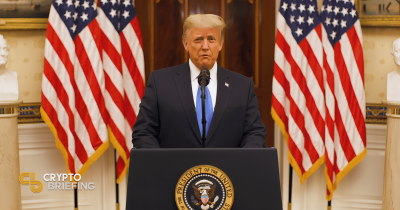If implemented, the plan would exempt nearly 38% of eligible US voters from income taxes.

Key Takeaways
- Trump's tax reform could exempt 93.2 million Americans from income taxes.
- Economists question the feasibility of replacing income tax with tariffs.
Donald Trump’s tax reform proposals could provide partial or full income tax exemptions to 93.2 million Americans, nearly half of the US electorate, according to a report by CNBC.
The former president, currently the Republican nominee for the 2024 election, has outlined this vision as part of a broader plan to phase out income taxes. These reforms are focused on eliminating taxes on tips, Social Security benefits, and potentially expanding to include exemptions for firefighters, police officers, and military personnel.
His strategy is to shift the revenue burden onto tariffs, particularly through a proposed 20% universal tariff on all imports, with a 60% tariff on Chinese goods.
Trump’s tax plan aims to reshape the income tax system, relying on tariff revenues, which economists question. Analysts doubt tariffs can fully replace income tax revenue, with the Tax Foundation estimating a $3 trillion federal revenue loss from 2025 to 2034.
Although prediction markets, such as Polymarket, currently position Donald Trump with a 61.7% lead over Harris, and Kalshi shows a 57% lead, these reforms remain uncertain.
Even if Trump wins the 2024 election, he would still need to secure a Republican majority in the House of Representatives to enforce his proposed tax reforms.
Disclaimer
 1 week ago
9
1 week ago
9




:quality(85):upscale()/2024/10/29/957/n/1922441/c62aba6367215ab0493352.74567072_.jpg)
:quality(85):upscale()/2024/10/29/987/n/49351082/3e0e51c1672164bfe300c1.01385001_.jpg)
:quality(85):upscale()/2024/10/30/711/n/1922441/c62313206722590ade53c4.47456265_.jpg)

 English (US) ·
English (US) ·